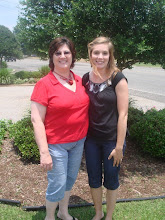English is undoubtedly one of the most complicated languages in the world, and we authors can attest to this. Having done well in school, especially English, I usually don’t run into problems with my spelling. However, there are certain words I stumble over—words the typical spell-check program won’t catch. Words like chose, choose, breath, breathe, lose, loose, and so on.
When writing, I do a lot of reasoning when words like these pop up. Should I type choose or chose? My character is faced with a decision. She needs to pick which way to go. Well, the word I don’t want is chose (rhymes with hose) because that’s past tense, so the correct word is choose. Okay, good so far. Now I need a word to indicate that she stands to misplace something. Since we’ve established that chose rhymes with hose, the word I need should rhyme with choose. She will loose her mind if she’s not careful. No? The correct word is lose? Like loser? Oh, man! Loose has a harder s sound, like goose, but the word choose has a z sound like lose (with one “o”). What gives?
No wonder people from other countries have a hard time learning our language!
How about breath and breathe? My character needs to take a moment to inhale and exhale. She needs to do something that rhymes with eat. I guess she needs to breath. Eat doesn’t have an e at the end of it, so breath has to be the right word, but that doesn’t look right. It is supposed to be breathe.
See what I mean about this crazy language of ours? Not everything is consistent. So, what is an author to do? Many times I consult my big, fat Websters, other times I rely on my critique partners to catch my blunder, but these methods aren’t foolproof. What I’ve chosen to do is make a list of my most troublesome words. The act of writing them down reinforces something in our brain so chances are the naughty word is less likely to go unnoticed next time. I don’t know if there’s scientific proof to back this up, but it works for me. What works for you?
Jo Robertson - "The Traitor" [Trailer]
10 years ago

No comments:
Post a Comment